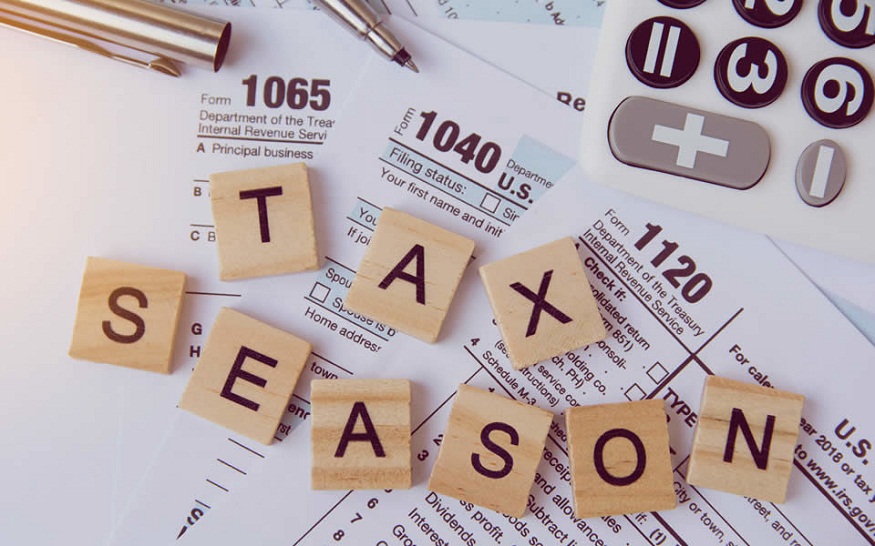As the calendar turns to the time of year when taxes come into focus, it’s crucial to look at more than just the numbers on the tax documents. Tax season is a prime opportunity for individuals to align their financial habits with their long-term objectives and strengthen economic foundations. An effective strategy is incorporating online tax platforms, which can streamline the tax filing process and make it less daunting. This in-depth exploration will delve into various facets of personal finance management to leverage tax season for a better financial footing.
Understanding Taxes and Personal Finances
Understanding taxes and personal finances is critical to financial well-being. Tax software simplifies the process, offering step-by-step guidance and tools to maximize deductions. With discounts and coupon deals often available at https://www.retailmenot.com/view/turbotax.intuit.com, individuals can manage their taxes affordably while gaining valuable insights into their financial health. These software solutions streamline tax preparation, ensuring accuracy and compliance with ever-changing tax laws. Users may take charge of their money, maximize savings, and establish plans for a secure financial future using inexpensive tax software. They may now make informed judgments and accomplish their financial goals.
Organizing Financial Documents
Organization is the most underappreciated aspect of financial management, especially when preparing for tax season. An organized system for tracking receipts, invoices, bank statements, and other financial documents throughout the year can substantially reduce the anxiety associated with tax filing. This practice also aids in more accurately reporting expenses and income, ensuring all eligible deductions are claimed. Furthermore, it equips individuals with a comprehensive overview of their financial history, which is invaluable for budgeting and planning.
Effectively Budgeting for Tax Obligations
Many individuals are surprised by their tax bills because they do not account for yearly taxes. Implementing a budget that includes tax estimates is crucial to avoid such a scenario. Setting aside a percentage of income congruent with the expected tax bracket is advisable. In cases where income could be more consistent, such as with freelancers or contractors, understanding tax obligations as they fluctuate becomes even more critical. Adding a buffer for unforeseen tax liabilities can help prevent stressful financial scrambles at the year’s end.
Exploring Deductions and Credits
An essential yet frequently neglected aspect of financial planning during tax season is the strategic pursuit of deductions and credits. Proactively understanding potential tax deductions, such as mortgage interest, student loan interest, or medical expenses, can lead to substantial savings. Likewise, tax credits offer significant financial relief. Reviewing the previous year’s tax filings and the current year’s changes ensures all applicable deductions and credits are utilized to their fullest extent. People can reduce their tax obligations and keep more of their hard-earned money by proactively preparing their taxes and using all available credits and deductions. This will ultimately improve their financial situation.
Importance of Saving for Emergencies
Laying the foundation for a sturdy financial emergency fund is critical to resilience. Life is rife with unplanned occurrences—medical emergencies, sudden job loss, or urgent home repairs can quickly deplete financial reserves. Having a fund earmarked for such situations protects individuals from prematurely withdrawing from retirement accounts or missing tax payments. These actions can carry hefty penalties or disrupt long-term financial planning. Save enough to cover three to six months’ worth of living costs minimum to guarantee economic security and peace of mind.
Investment Strategies During Tax Season
Investing demands a long-term perspective and a comprehensive grasp of tax implications. Astute investors consistently reevaluate their portfolios to gauge tax efficiency, contemplating the timing of capital gains and the advantages of investments offering tax-deferral benefits. Informed decisions regarding selling or holding an investment can profoundly impact one’s tax situation and net investment returns. By strategizing to minimize tax liabilities through tactics like tax-loss harvesting or utilizing tax-advantaged accounts, investors can optimize their after-tax returns and bolster their financial goals over the long haul.
Retirement Planning and Tax Implications
When thinking about tax season, retirement planning should always be considered. Contributions to retirement plans, like traditional IRAs and 401(k)s, can lower taxable income, enabling people to save for the future while lowering their present tax obligations. Conversely, bearing the tax implications of retirement fund withdrawals is essential, sometimes leading to sizable tax obligations. Therefore, thoughtful planning is critical to maximizing retirement savings and strategically managing the tax impacts associated with these savings.
Utilizing Digital Tools for Financial Management
The rise of financial technology has revolutionized personal finance management, offering a plethora of digital tools that can significantly enhance financial decision-making. Budgeting apps and online investment platforms streamline savings and investment decisions, automate processes, and provide real-time insights into financial health. These tools are helpful during tax season since they collect financial data and produce reports that make filing taxes easier. This marks a fundamental shift in how individuals manage their finances, corroborated by articles discussing financial technology trends. As technology evolves, these digital solutions empower individuals to take control of their finances with greater ease and efficiency, ultimately paving the way for a more secure financial future.
Learning from Financial Mistakes
Everyone is susceptible to financial missteps, and the realm of taxes is no exception. However, the lessons gleaned from these experiences hold the most value. For instance, individuals may learn the significance of adjusting withholding amounts to avoid owing a substantial sum at tax time or the ramifications of postponing contributions to retirement accounts. The key lies in evaluating and using these errors to shape future tax strategies and personal finance decisions. By doing so, individuals can turn setbacks into opportunities for growth and enhanced financial knowledge, ultimately fostering a more secure and prosperous economic future.

